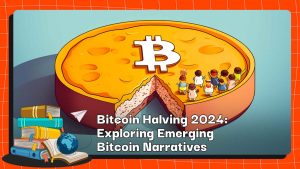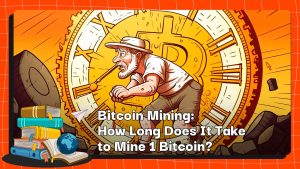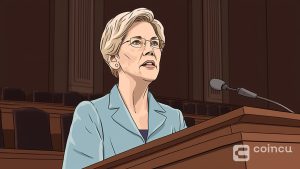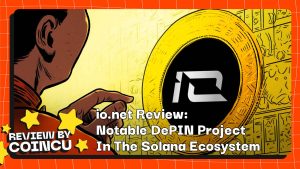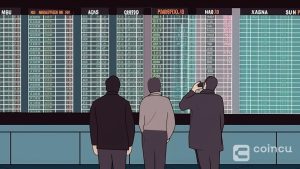Don’t Invest in BendDAO (BEND) Until You Read This Eye-Opening Report!
BendDao is an NFT-Fi project that aims to offer a lending and borrowing protocol based on NFTs. This research paper will explore what BendDao is, why NFT-Fi is important, how the mechanism works, and the ecosystem surrounding the project. Additionally, we will also examine the focus on lending/borrowing, aggregation, and derivatives.
What is BendDao?
BendDao is a DeFi (decentralized finance) platform that is built on the Ethereum blockchain. It aims to enable lending and borrowing of non-fungible tokens (NFTs) in a decentralized manner. The platform has created a marketplace where users can lock up their NFTs as collateral and obtain loans in the form of cryptocurrency or stablecoins. BendDao is designed to provide a lending and borrowing solution for users who hold NFTs, enabling them to unlock the value of their NFTs without the need to sell them.
Why NFT-Fi?
NFT-Fi or NFT Finance is a relatively new concept that combines the unique features of NFTs with DeFi. It allows users to leverage their NFT holdings to access loans and other financial services. NFT-Fi is important because it offers a new way for NFT owners to generate liquidity without having to sell their NFTs. By providing a way to collateralize NFTs, NFT-Fi platforms can unlock the value of NFTs and offer additional financial products to the broader DeFi ecosystem.
Mechanism
The mechanism of BendDao is a decentralized finance (DeFi) platform that provides a range of services related to lending, borrowing, aggregating, and trading non-fungible tokens (NFTs). The platform operates on the Ethereum blockchain and is built on a smart contract-based protocol.
BendDao’s mechanism works by leveraging smart contracts to automate various aspects of the lending and borrowing process. When a user wants to lend an NFT, they deposit the NFT into a smart contract, which is programmed to automatically execute the lending process. The smart contract is also responsible for managing the collateral, interest rates, and other aspects of the lending process.
Similarly, when a user wants to borrow an NFT, they deposit collateral into a smart contract, which is programmed to automatically execute the borrowing process. The smart contract is also responsible for managing the interest rates and other aspects of the borrowing process.
One of the key features of BendDao’s mechanism is the use of a decentralized governance model. The platform is governed by the BDAO token holders, who have the ability to vote on various proposals related to the platform’s development and management. This allows the community to have a say in the direction of the platform and ensures that decisions are made in a transparent and decentralized manner.
Another important aspect of BendDao’s mechanism is the use of oracles to determine the value of NFTs. Oracles are third-party services that provide real-time pricing data for various assets. In the case of BendDao, oracles are used to provide pricing data for NFTs, which is used to determine the value of collateral and synthetic NFTs used in the lending and borrowing process.
Finally, BendDao’s mechanism also includes a range of features related to trading and aggregating NFTs. The platform’s aggregator allows users to access liquidity from multiple DeFi protocols, while its derivatives platform allows users to create and trade financial products based on the value of NFTs.
In summary, the mechanism of BendDao is a smart contract-based protocol that automates various aspects of the lending, borrowing, and trading of NFTs. The platform uses a decentralized governance model and oracles to ensure transparency and accuracy in the lending and borrowing process. Additionally, the platform’s aggregator and derivatives platform provide users with additional features related to trading and accessing liquidity for NFTs.
Ecosystem
The BendDao ecosystem consists of various stakeholders, including borrowers, lenders, and traders. The borrowers are NFT owners who use the platform to unlock the value of their assets by obtaining loans. The lenders are users who lend cryptocurrency or stablecoins to borrowers in exchange for collateralized NFTs. Finally, traders are users who buy and sell NFTs on the BendDao platform. The ecosystem is supported by the BendDao team, which includes developers, marketers, and community managers who work to maintain and grow the platform.
Lending/Borrowing
Lending and borrowing are two essential functions of traditional finance, and BendDao aims to bring these functionalities to the world of NFTs through decentralized finance (DeFi) mechanisms.
Lending and borrowing in BendDao work by allowing NFT holders to lock up their NFTs as collateral and receive a loan in the form of cryptocurrency or stablecoins. Borrowers are required to pay back the loan plus interest within a specified timeframe. If the borrower fails to repay the loan within the agreed-upon timeframe, the collateralized NFT is liquidated, and the funds are used to repay the loan.
Lenders can participate by providing cryptocurrency or stablecoins to the lending pool, which is then lent out to borrowers. Lenders earn interest on the loans provided, which is paid out in the form of the project’s native token, BEND.
One of the advantages of using NFTs as collateral for lending and borrowing is that it allows NFT holders to generate liquidity without having to sell their NFTs. This is particularly useful for NFT holders who wish to hold onto their NFTs as a long-term investment but also require funds in the short-term.
BendDao’s lending and borrowing mechanism is implemented through smart contracts on the Ethereum blockchain. This means that the process is entirely decentralized, and there is no central authority that controls the lending and borrowing process. The platform also charges a fee for its services, which is paid in the form of BEND tokens.
Lending and borrowing in BendDao are key functions that allow NFT holders to unlock the value of their assets without having to sell them. This is achieved through a decentralized lending and borrowing mechanism that is implemented through smart contracts on the Ethereum blockchain. Lenders provide cryptocurrency or stablecoins to the lending pool, while borrowers lock up their NFTs as collateral to obtain loans. The platform charges a fee for its services, which is paid in the form of BEND tokens.
Aggregator
An aggregator in the context of BendDao refers to a platform or service that combines liquidity from multiple decentralized finance (DeFi) protocols to offer users the best possible rates for their transactions.
Aggregators help users find the most competitive rates for lending, borrowing, or trading their assets by aggregating liquidity from multiple DeFi protocols. This can save users time and money by eliminating the need to manually search for the best rates across multiple platforms.
In the case of BendDao, the aggregator is designed to provide users with the best possible rates for lending and borrowing NFTs. The aggregator works by aggregating liquidity from multiple lending and borrowing protocols, allowing users to access the most competitive rates available.
By using an aggregator, users can benefit from greater liquidity and more competitive rates than they would be able to access through a single protocol. This can be particularly important in the context of NFTs, where liquidity can be more limited than in other asset classes.
BendDao’s aggregator also supports a wide range of NFTs, which allows users to access liquidity for a diverse range of assets. The aggregator also supports cross-chain transactions, which means that users can access liquidity across multiple blockchains.
he aggregator in BendDao is a platform that combines liquidity from multiple lending and borrowing protocols to offer users the best possible rates for their NFT transactions. The aggregator supports a wide range of NFTs and cross-chain transactions, allowing users to access liquidity for a diverse range of assets. By using an aggregator, users can benefit from greater liquidity and more competitive rates than they would be able to access through a single protocol.
Derivatives
Derivatives are financial instruments that derive their value from an underlying asset or group of assets. In the context of BendDao, derivatives refer to financial products that are based on the value of NFTs.
BendDao’s derivatives platform allows users to create and trade derivative products based on the value of NFTs. These products can include options, futures, and other types of financial instruments. Derivatives can be used by traders to hedge risk or speculate on the price movements of NFTs.
The derivatives platform in BendDao works by allowing users to create synthetic NFTs, which are NFTs that represent the value of an underlying asset. These synthetic NFTs are then used to create derivative products. The value of the synthetic NFTs is determined by an oracle, which provides real-time pricing data for the underlying asset.
One advantage of using derivatives in BendDao is that it allows users to speculate on the price movements of NFTs without actually owning the NFTs themselves. This can be particularly useful for traders who want to benefit from the volatility of NFT prices without taking on the risk of holding the NFTs themselves.
Another advantage of using derivatives in BendDao is that it allows NFT holders to hedge their risk by creating derivative products based on their NFTs. For example, an NFT holder could create a put option on their NFT, which would give them the right to sell the NFT at a fixed price if its value falls below a certain level.
Conclusion
BendDao is a promising NFT-Fi project that aims to provide a lending and borrowing solution for NFT owners. By enabling NFTs to be used as collateral, BendDao unlocks
DISCLAIMER: The Information on this website is provided as general market commentary and does not constitute investment advice. We encourage you to do your own research before investing.
Join us to keep track of news: https://linktr.ee/coincu
Annie
Coincu News











